How to Get Rid of Gas And Bloating Fast? Almost everyone experiences the accumulation of gas and the feelings of bloating and sometimes pain that accompany it of bloating and pain, usually called indigestion or flatulence, but hardly anyone likes to talk about it.
The buildup and release of gas in the intestines is normal, but is more marked and troublesome for some people than for others. Medical and specifically digestive disorders can cause or contribute to problems with gas and bloating, as can psychological stress.
Weight, dietary habits and physical activity or lack of it are also important factors, too. It is sometimes necessary to seek medical help with severe indigestion or flatulence, and some people may need diagnostic studies or evaluation and treatment by a digestive disease specialist or gastroenterologist.
There are many things that you can do, however, to lessen the likelihood of gas and bloating, and to relieve or decrease it if it occurs.
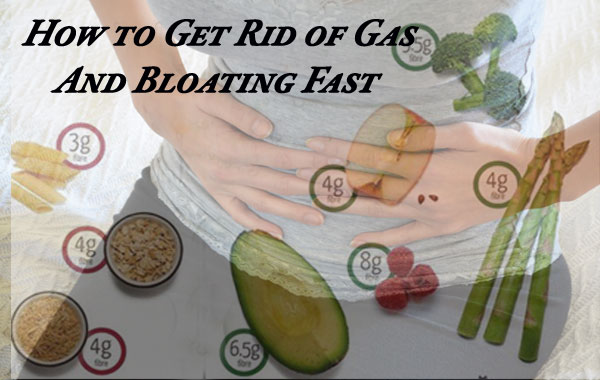
Gas is produced normally in the stomach and intestines as food is broken down and absorbed. You take in gas, too, in the form of some of the air that we all breathe, and also by talking, laughing, chewing, swallowing and drinking liquids. Gas is passed from the digestive tract regularly through the day, and there are two additional mechanisms to get rid of larger volumes of accumulated gas, flatulence and belching.
It is estimated that the average person produces between 1 and 4 pints of gas a day but only has about 200 milliliters or 7 fluid ounces in the digestive tract at any one time. You usually pass gas about 14 times a day, and the total passed is usually about 500-1500 milliliters or 17-50 ounces.
Stomach gas is usually the result of swallowing air, and this is increased by anxiety, talking while eating, drinking through a straw or eating fast. This gas is usually relieved by belching. Intestinal gas is caused by the fermenting of undigested food by intestinal bacteria, particularly fiber and complex carbohydrates that are not digested completely.
Many of the healthiest foods, such as beans, leafy green vegetables and whole grains, contain a lot of fiber and have as well a particularly complex sugar called raffinose that produces gas. Starches like pasta and potatoes also contain raffinose, and many fruits and most low-sugar or sugar-free foods contain sucrose and fructose, which are also gas generators.
People who are lactose intolerant do not have enough of the enzyme lactase to completely break down lactose, the sugar contained in dairy products, and get more gas from milk and cheese. Likewise, people who cannot properly digest gluten on account of celiac disease or related conditions, will get more gas from wheat products.

Some disorders of intestinal function, such as irritable bowel syndrome, are also associated with gas and bloating, and bloating and pain do not only come from gas. People with irritable bowel syndrome and other functional digestive disorders who experience bloating do not have more intestinal gas than people with other gastrointestinal conditions. Other factors like diet, lifestyle and psychological state appear to contribute to how much problem intestinal gas can cause.
How to Get Rid of Gas And Bloating Fast Naturally in 10 ways:
Table of Contents
If you do not have one of these digestive disorders, for which a number of prescription treatments are available, over-the-counter medications, changes in diet and lifestyle, natural medicines and several home remedies that are already in most people’s kitchens will often be helpful.
Medications:
Over-the-counter medications are often helpful for gas and bloating. Antacids are more effective for the other symptoms that often go along with flatulence, particularly heartburn, and may help when gas is due to some digestive disorder.
Stomach and intestinal gas is mostly air, with a little hydrogen and methane mixed in, and like most gases it forms bubbles. Simethicone is a form of silicon that decreases the surface tension of gas bubbles and allows them to combine into larger but fewer bubbles, which can be passed more easily.
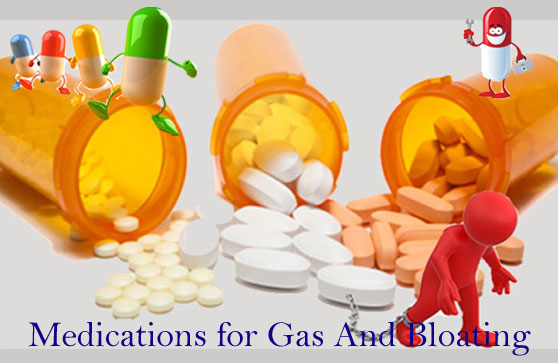
Simethicone does not prevent or reduce gas formation, but relieves pain and bloating by reducing the effect of gas bubbles as well as facilitating gas passage. Simethicone can be taken by itself or in combination with antacids, and does not seem to have significant side effect.
If you have high blood pressure or kidney problems, some caution is needed in taking antacids with or without simethicone, because most of them contain calcium and some magnesium, some antacid preparations contain aluminum and there is also sodium in some of them. This is something to discuss with your doctor in those situations.
Diet and Lifestyle:
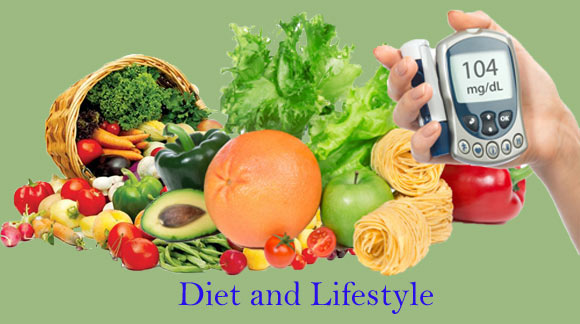
High in Fiber Foods:
Although diets high in fiber and featuring beans and whole grains and leafy green vegetables are widely recommended for health generally, people who have trouble with gas may do better to moderate these foods.
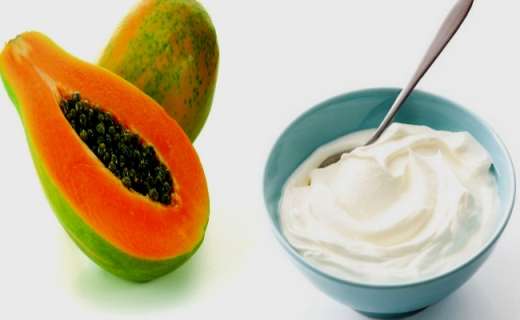
Limiting dairy products may also help, even if you have not previously been lactose-intolerant.
Avoid Processed and Junk Foods:
The various and mostly unhealthy flavorings and preservatives added to processed and junk foods may also make gas worse.
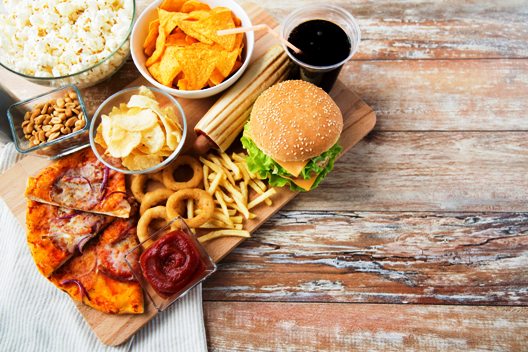
If you are otherwise healthy, a detoxification diet for a few days may make you feel better, and you might consider also a juice fast for a day or two.
An elimination diet, which can be found on line, may take a week or so but may make you feel better and, if successful, might be an indication that your digestive symptoms might be due to gluten sensitivity. These are also things to discuss with your doctor.
Avoid Carbonated drinks:
Carbonated drinks have gas in them to begin with, and either contain sugar which contributes to gas or have artificial sweeteners which can enhance gas formation.

Caffeine, whether in soft drinks or in coffee and tea, is an intestinal stimulant and can make gas worse, so this is another place to cut back. The stimulant effects of caffeine can also contribute to gas and bloating, which are often worse for people who are stressed, or fatigued or have insufficient sleep.
Reduce Stress and Stop Anxiety, sleep well:
Sleep improvement and stress management contribute to the improvement of gas symptoms, because stomach emptying and intestinal contractions are disturbed by fatigue and stress and lead to difficulty in properly digesting food, which enhances the production of gas, and difficulty in passing gas normally.

In addition, stress and anxiety may lead to the swallowing of more air, which puts more gas in the digestive tract, and people may eat more irregularly and more rapidly when they are stressed, which will also lead to more air swallowing and gas.
Yoga, tai chi, meditation and other forms of mindfulness and stress management may help with gas, and are also generally beneficial.
Moderate Exercise is Useful:
As with other aspects of health, moderate exercise every day or other day, even as modest as walking, has been found to be beneficial.

A form of exercise that is particularly helpful in eliminating gas is to lie on your back with your legs in the air and move the legs in a bicycling motion.
Natural Medicines:
Natural and herbal medicines have been used since ancient times by both Eastern and Western physicians, and also by Native American healers, to improve digestive function. In the classification of herbs and herbal medicines, there is a whole category for plants and their derivatives that help to mobilize gas, the carminatives.
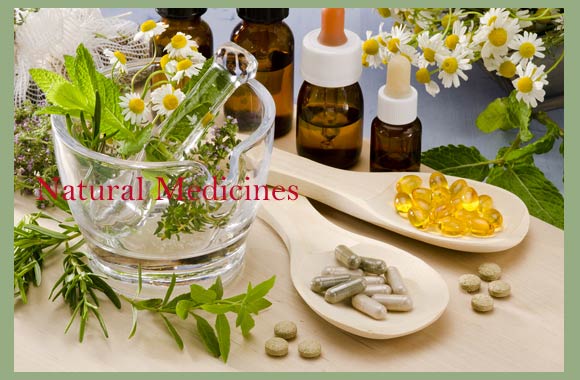
Some of these plants and plant extracts can be included in the diet, some can be taken as teas or infusions, the extracted oils of some can be used for aromatherapy and some are available as pills or capsules, or have been diluted to very low strength but apparently great potency as homeopathic remedies.
Peppermint essential oil and Tea:
Peppermint’s essential oil contains menthol, which is an antispasmodic for the stomach and a calmative for the nerves. Applying drop or two of peppermint oil on the skin (more of the oil can be irritating), combining the oil with a neutral carrier like vegetable or olive oil for a massage or adding a few drops to as bath is a relaxing form of aromatherapy.
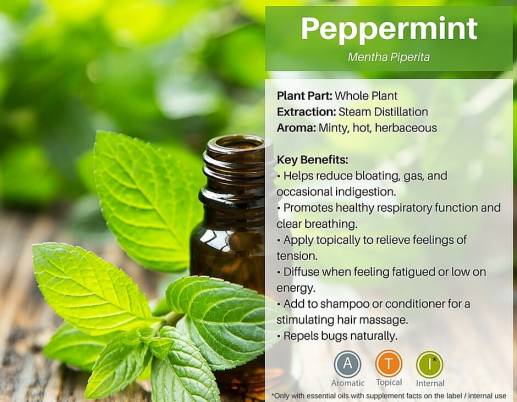
Peppermint tea, preferably steeped for 10 to 15 minutes before drinking, is another simple remedy for gas. Read also: Make Hair Not Look Greasy.
Ginger for Bloating and Gas Relief:
Ginger root has long been used for digestive upset, and contains chemicals that relax intestinal smooth muscle (gingerols) while the root itself is a carminative.
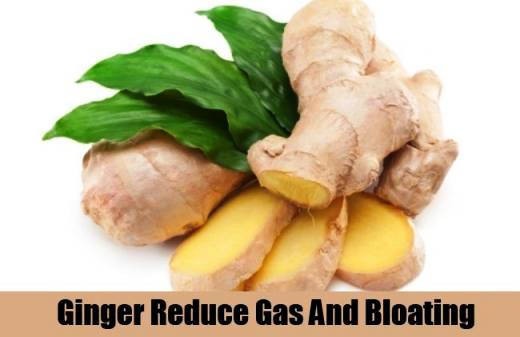
Ginger Pieces can be chewed or grated and taken with meals to lessen gass; the root, scrubbed like a potato, can also be grated into hot but not boiling water, so as not to vaporize the oils, and then steeped for 10 or more minutes for gas relief. Honey or lemon can be added as to other teas.
Caraway:
Another plant that can be chewed for gas is caraway, either the seeds themselves or caraway crackers, recommended for this purpose by herbalists since at least the 16th century.
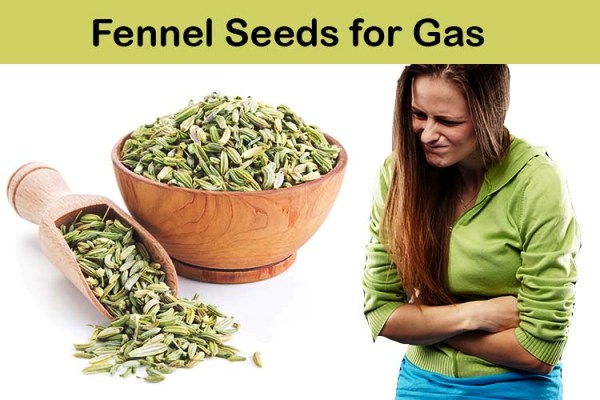
Pumpkin:
Pumpkin, on the other hand, works better for gas if the pulp of the pumpkin is eaten rather than the seeds. A cup of baked, steamed or broiled pumpkin can be used as a vegetable or added to foods high in fiber to lessen their tendency to produce gas.
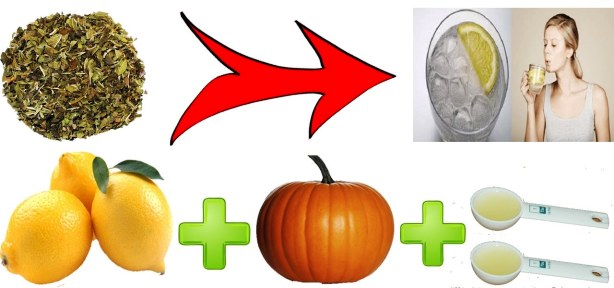
Chamomile Tea:
Another type of tea that is helpful is chamomile, which is both a calming relaxant and a carminative herb. German physicians, who have historically been very supportive of what we call “alternative medicine”, have named chamomile alleszutraut(“capable of anything”) because of its many therapeutic uses.
The tea is made like black or green tea, but should be steeped a little longer (10-15 minutes), and although honey and lemon are often added as sweeteners, it is best to avoid milk so as not to produce more gas. Ground dandelion greens can also be used for a carminative tea.
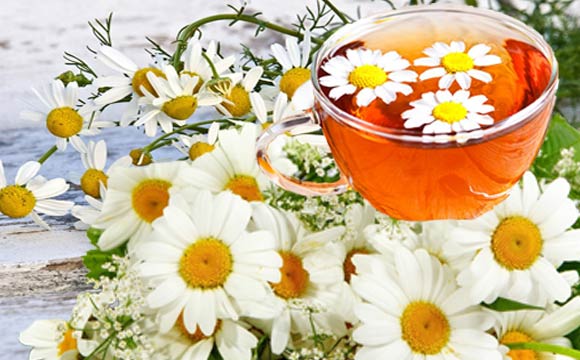
You do not necessarily have to steep a tea for 15 minutes for anti-gas benefit. Lemon can be added to warm water, usually 2 or 3 wedges or a spoonful or two of lemon juice in a cup of water (enough to make the water cloudy). This increases the production of hydrochloric acid by the stomach, which enhances digestion and leaves less undigested food for intestinal bacteria to ferment into gas.
Activated charcoal:
Other carminative herbs that can be chewed before or after meals are fennel and anise; you will sometimes see bowls of these in Indian and Chinese restaurants, and they are in part an after-dinner taste of sweetness for cultures that are not generally big on dessert and in part a breath freshener.
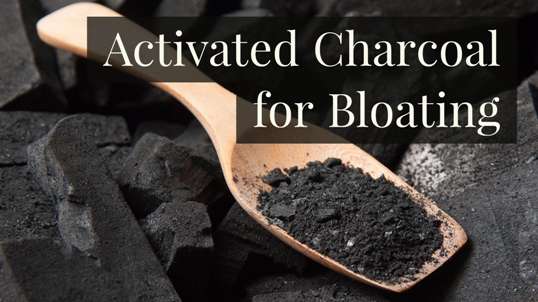
They also antagonize the gas-stimulating effect of the spices that are often used in Chinese and very frequently in Indian cooking.
Another simple gas remedy to chew before or after meals is activated charcoal, which can be bought in powder, capsule or tablet form. This is like regular charcoal but is oxidized by hot steam and develops pores; on account of this it traps chemicals, which is why it is used to treat poisoning, but it also traps and removes intestinal gas. read also: apple cider vinegar hair for growth.
Carminative foods:
It is sometimes advisable to limit or eliminate certain foods and avoid spices if they cause gas. These can be simply replaced by a few other carminative foods.
Garlic is an excellent seasoning and has many health benefits once you get used to the taste; it is also a carminative herb.

Parsley is a useful seasoning when chopped or ground that may improve digestive health, and when eaten whole is a leafy green that does not cause gas but rather helps to pass it. Parsley is also a very good antagonist to garlic breath, along with fennel and anise.
Probiotics and Homeopathics:
Intestinal bacteria are largely responsible for the production of gas, so one answer to a gas problem is to increase the population of beneficial bacteria.
Dr. Eli Metchnikoff, a colleague of Louis Pasteur, won the Nobel Prize in 1908 for demonstrating the role in immunity and health of Lactobacillus and other “good” bacteria, and today there are countless supplemental bacterial preparations available as dietary supplements.
Lactobacillus acidophilus and rhamnosusare the bacteria most helpful for digestive problems, and a preparation of 1 to 5 billion bacteria a day is most effective.
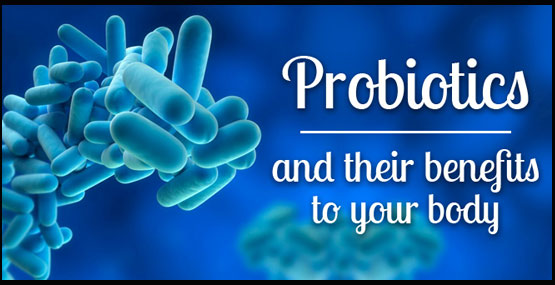
Homeopathic remedies are thought to work by producing an “artificial disease” similar to the patient’s symptoms and triggering the natural healing abilities of the body.
Of the many highly diluted and therefore quite safe preparations of animal, mineral and vegetable materials that have been used in homeopathic treatment for some 200 years, the ones most effective for indigestion and flatulence are Pulsatilla(they are customarily named in Latin for the material from which they are made), which is windflower or the prairie crocus, Carbo vegitabilis, which is a form of activated charcoal, and Natrumphosphatum, which is made from sodium phosphate.
These remedies are safe, inexpensive and sold over-the-counter, and exemplify what many people are looking for in ways to treat their gas problems.
Sources
http://en.wikipedia.org/wiki/Flatulence
Stengler M. The Natural Physician’s HGas And Bloatingealing Therapies: Proven Remedies Medical Doctors Don’t Know. New York, Prentice Hall, 2010.
www.everydayhealth.com/hs/gas-and-bloating/home-remedies-for-gas.
Last Updated on January 17, 2018 by Marie Johnson
